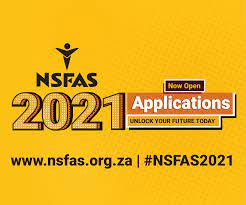What Does The NSFAS Bursary Cover – A Detailed Guide
The National Student Financial Aid Scheme (NSFAS) is one of South Africa’s key government initiatives designed to provide financial assistance to students from financially disadvantaged backgrounds. As education becomes increasingly expensive, the NSFAS bursary aims to ensure that deserving students are not excluded from higher education due to financial constraints. Whether you’re considering applying for the NSFAS bursary or are simply curious about what it covers, this article will break down the various aspects of the funding to help you better understand the support you could receive.
What is NSFAS?
Before delving into what NSFAS covers, it’s important to understand the role of the bursary scheme. NSFAS is a government-backed initiative that provides financial assistance to South African students who are enrolled at public universities and Technical and Vocational Education and Training (TVET) colleges. The aim of the bursary is to reduce financial barriers that may prevent students from accessing higher education.
NSFAS covers a range of study-related expenses, depending on the specific needs and circumstances of the student. However, the funding is meant primarily for students who come from households with an income that is below a certain threshold.
Key Areas That NSFAS Covers
The NSFAS bursary is designed to be comprehensive and aims to relieve the financial burden of students in the following categories:
1. Tuition Fees
One of the primary expenses that NSFAS covers is tuition fees. This is the cost that universities charge for enrollment in a specific program or course. Whether you’re studying at a public university or a TVET college, the NSFAS bursary will pay your tuition fees directly to the institution.
NSFAS covers the full tuition fee for eligible students, which includes registration fees and the cost of courses. However, it’s important to note that tuition fees for private universities or non-registered institutions are not covered by NSFAS.
2. Accommodation Costs
For students who live away from home and require accommodation, NSFAS will cover accommodation costs. This includes renting a room in university residences or private accommodation.
The amount allocated for accommodation depends on the location of the institution. Students living closer to their university may receive a smaller allocation, while students studying at institutions in areas where accommodation is more expensive may be given a larger amount. In some cases, if a student chooses to stay with family members (also known as “living at home”), they may be allocated a reduced accommodation allowance.
3. Books and Study Materials
NSFAS also provides funding for books and study materials. This covers the cost of textbooks, academic journals, and any required course materials. Given that textbooks can be quite expensive, this is a significant part of the financial assistance NSFAS provides.
NSFAS may provide an allowance for students to purchase books, either directly or through a bookstore linked to the institution. The amount can vary depending on the program and the number of books required.
4. Living Allowance
To help cover the day-to-day expenses of students, NSFAS provides a living allowance. This is an amount intended to help students pay for food, transport, and other daily expenses while they pursue their studies.
The living allowance is meant to ensure that students can meet their basic needs while studying full-time. The amount varies from one student to another, depending on factors like the institution and the student’s personal circumstances.
5. Transport Costs
For students who need to travel to their institution from home or between campuses, NSFAS provides transport allowances. This can cover public transportation fees or petrol costs for students who drive themselves.
NSFAS typically provides a transport allowance to students who live far from their universities or TVET colleges, although the allocation depends on the distance and location of the institution. The aim is to help students reduce travel-related financial pressures.
6. Special Allowances for Disabilities
NSFAS recognizes that students with disabilities may face additional challenges in pursuing their education. As such, students who are registered with disability services at their institutions may receive additional allowances for special needs. These allowances could cover:
- Assistive devices like hearing aids or braille materials
- Personal care assistants or caregivers
- Modified study materials (e.g., large print or electronic formats)
This extra support is meant to ensure that students with disabilities have the necessary resources to study effectively and have equal access to education.
7. Accommodation for International Students
While NSFAS primarily caters to South African students, in rare cases where a South African student is studying abroad in a foreign institution that is accredited and registered with NSFAS, the scheme may provide financial assistance for accommodation and living expenses. However, this is not common and is subject to the institution being recognized by NSFAS.
What Does NSFAS Not Cover?
While the NSFAS bursary offers broad support for students, it is important to recognize that there are certain expenses it does not cover:
- Private Accommodation: NSFAS only covers accommodation in university residences or approved private accommodation that falls within the specified limits.
- Private Universities: NSFAS funding is typically restricted to public universities and TVET colleges, meaning it will not cover tuition at private institutions.
- Non-Educational Expenses: NSFAS funding does not cover personal costs such as clothing, entertainment, or any expenses unrelated to study materials or educational requirements.
- Non-Registered Courses: If a student is studying a course that is not accredited by NSFAS, the bursary will not cover the costs associated with that course.
How Does NSFAS Funding Work?
The NSFAS bursary is awarded based on financial need, and students do not need to repay the funds for their education unless they are employed after graduation and earn above a specific threshold. If students do not meet the academic criteria or if they fail to complete their studies, they may be required to repay the funds.
In terms of disbursement, the funds are generally paid directly to the institution. This means that tuition fees and other institution-related costs (such as accommodation and textbooks) are covered first. Any remaining funds (like living and transport allowances) are then given to the student.
Students are required to register each year for NSFAS funding and must meet certain academic progress requirements to continue receiving support.
The NSFAS bursary is an invaluable resource for students from disadvantaged backgrounds who are pursuing higher education in South Africa. It covers a wide range of study-related expenses, including tuition fees, accommodation, books, living allowances, and transport costs. However, it is important to understand the full scope of what is covered and what is excluded from the bursary’s support.
NSFAS helps reduce the financial barriers that prevent many South Africans from accessing tertiary education, and it offers comprehensive assistance to ensure that students can focus on their studies without the worry of financial strain. If you are eligible for NSFAS funding, you can apply for the bursary through the official NSFAS website and get started on your journey toward higher education.
To apply for the NSFAS bursary, visit the official website: NSFAS Application Portal.

